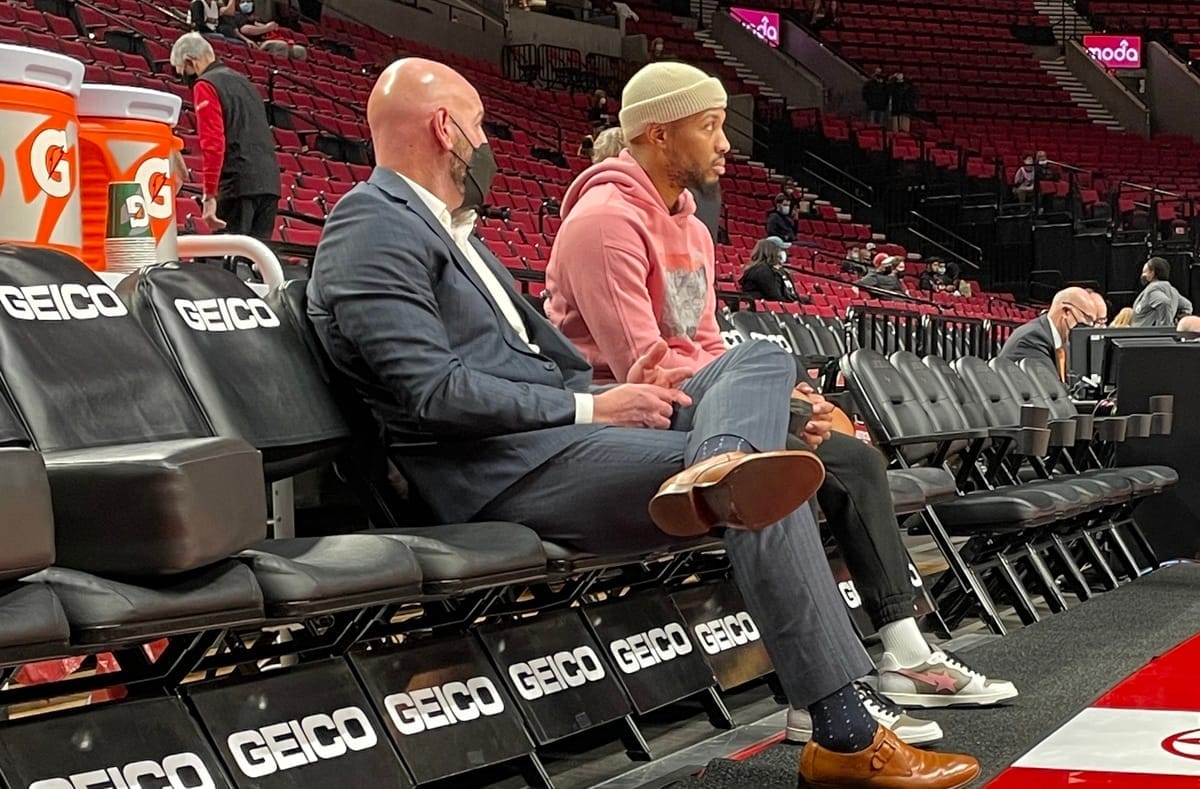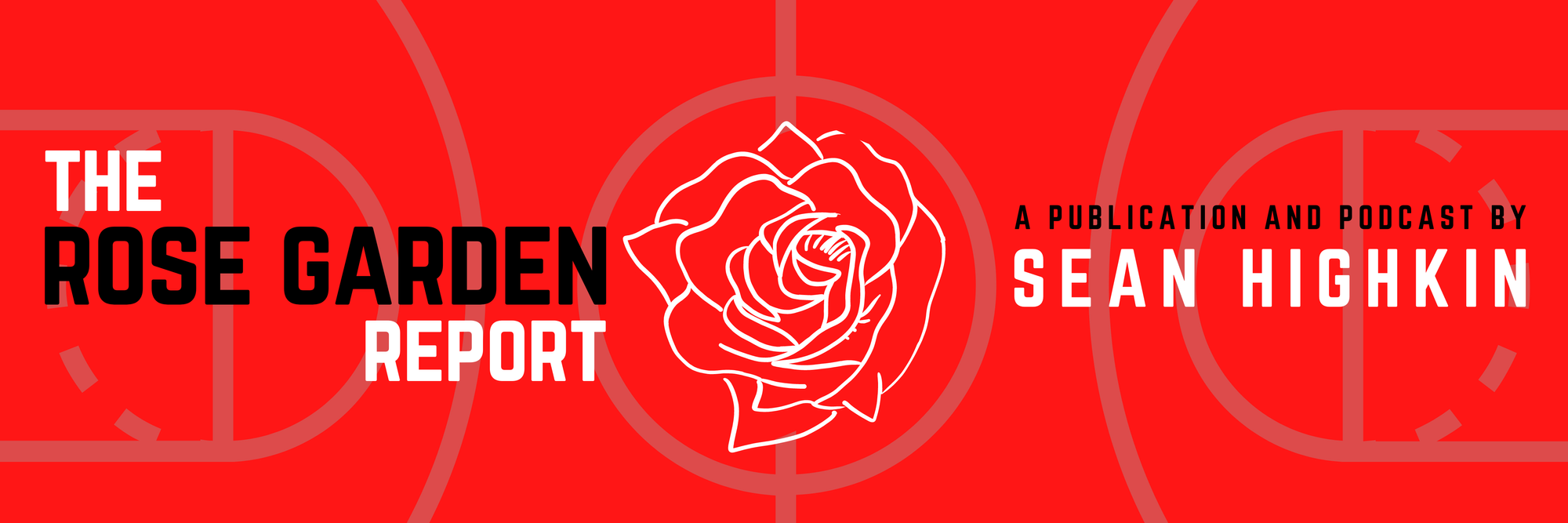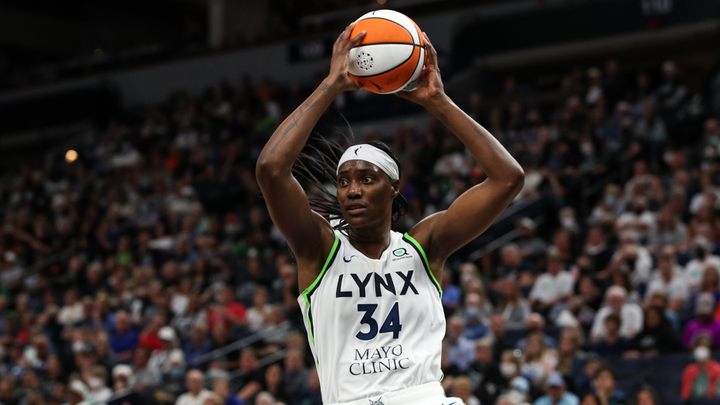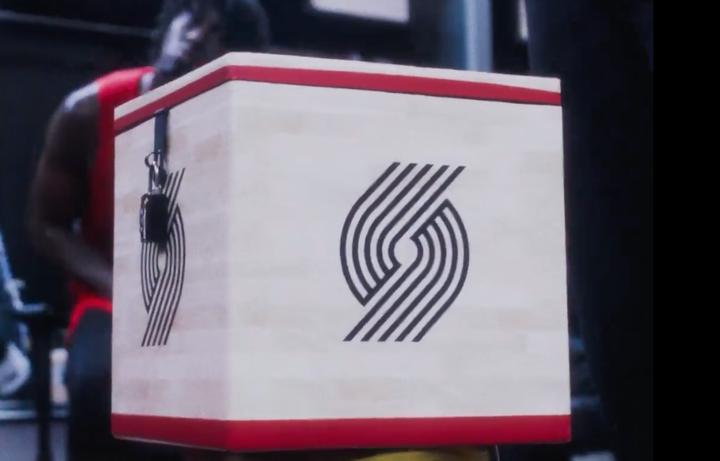Trail Blazers' Low-Key Trade Deadline Ups the Pressure to Get it Right This Summer
For the second year in a row, Portland took a short-term step back to prioritize future flexibility.

TUALATIN, Ore. — For the second year in a row, the Trail Blazers are a less talented basketball team the day after the trade deadline than they were before it.
This time last year, the direction was clear: take a short-term step back while Damian Lillard spent the season recovering from a core muscle surgery, get a high draft pick, get off some bad contracts and reload for the second half of his prime.
This year, it's less of a straightforward plan, and it only ramps up the pressure that was already mounting for the front office to get it fully right this summer.
In a vacuum, it's not hard to look at the three trades Joe Cronin made ahead of this afternoon's trade deadline and admit he did pretty well from an asset-management standpoint. The Blazers got a first-round pick for Josh Hart, who was likely gone this summer in free agency. They got Matisse Thybulle, an elite perimeter defender, for just a 2029 second-round pick. They picked up five future second-round picks for Gary Payton II, who has been a defensive spark but not as available as they hoped he'd be when they signed him as a free agent this summer. They took fliers on two former lottery picks, Cam Reddish and Kevin Knox, who haven't panned out at other stops but they feel could stick here. They didn't take on any long-term money.
Cronin is expected to address reporters on Friday. Expect to hear all of the above touted as reasons why the Blazers' deadline was a success. Expect to also hear how much they believe in the young players for whom these moves clear more runway: rookies Shaedon Sharpe and Jabari Walker, second-year big man Trendon Watford and Nassir Little, the presumptive new starter at small forward with Hart and Payton out of the picture.
None of that is wrong, and none of that is a bad thing. It's good to have salary flexibility, future picks available to trade and young players you're high on.
But this Blazers team also has something last year's team didn't, something that makes it a lot less palatable to take the wait-and-see approach to team-building: a healthy Lillard. And not just a healthy Lillard, but arguably the best version of Lillard we've ever seen. As long as they have that guy playing at this level, going backwards isn't an option, and at least as it stands today, that looks like exactly what they've done.
A little less than three weeks ago, following a blown 25-point lead in a loss to the Lakers, Chauncey Billups was asked what the Blazers' goal is for this season. What he said was that they want to "make the playoffs and be dangerous."
Tomorrow, it will be worth asking Cronin whether that's also his view of the goals for this season. If it is, he'd better be right about the young players being ready to take on significantly more responsibility. And he'd better be right about his own ability to make the long-promised "all-in" move this summer.
This roster's biggest flaw all season has been a lack of size, which has shown itself whenever the Blazers have found themselves with no answers for the Giannis Antetokounmpos and Nikola Jokic's and Joel Embiids of the league. Not that anyone can do much with those three, but even Thomas Bryant, who went off for a career-high 31 points in that Lakers loss, left them powerless to stop him. It's been their weakness since the summer, and with Jusuf Nurkic, their only center-sized big man, sidelined at least through the All-Star break with a calf injury, it puts even more pressure on Watford and Drew Eubanks to take on that responsibility.
The Blazers did get bigger on the perimeter. They swapped out 6-foot-3 Payton for 6-foot-5 Thybulle, and 6-foot-5 Hart for 6-foot-8 Reddish, while adding 6-foot-7 Knox. The years-running jokes about Portland's entire roster being made up of undersized guards have finally hit their expiration date. But they're still woefully undersized in the frontcourt outside of Nurkic. If they'd been able to move his contract for an upgrade at that position, or even just add another player taller than 6-foot-10 in one of the other deals they made, it would have this make more sense. That still feels like the missing element.
I don't think the Blazers materially affected their chances of making the postseason one way or the other. Phoenix won't be in the 4-through-13 cluster of teams in the Western Conference standings for long after shocking the world by trading for Kevin Durant late Wednesday night. But Utah pulled the plug as expected, and New Orleans, Minnesota and Golden State are still dealing with injuries to their best players. In all likelihood, the Blazers will hang around in the play-in range the rest of the season. And in a single-elimination game, there aren't very many players you'd take over this version of Lillard.
It would be far-fetched as it stands today to think Portland has a chance of winning even one playoff round. If they do make the playoffs, they'll almost certainly be one-and-done to whichever of the Nuggets, Grizzlies or Suns they end up facing. But making the playoffs, even as first-round fodder, will mean giving their first-round pick to the Bulls and freeing up future draft capital to use this summer to land Lillard's mythical second star.
Everything comes back to that part. The Blazers could have figured out a way to unprotect the Bulls pick to gain access to their other picks before the deadline if they really wanted to. If Brooklyn had called and offered Durant for Sharpe, Anfernee Simons and all their picks, I don't think Cronin would have said no. But from what I've heard and others have reported, the Nets didn't open up the bidding to other teams. Durant and his agent, Rich Kleiman, told ownership they wanted to go to Phoenix, and Joe Tsai and new Suns owner Mat Ishbia worked out a deal. So that one was never an option for the Blazers or anyone else, and no other players that moved at the deadline met the threshold of being worth pushing in all the chips.
Who the next needle-mover on the market will be is hard to say from here. Will the Raptors eventually move Pascal Siakam? Will the Timberwolves decide to cut their losses on the failed twin-towers experiment and make Karl-Anthony Towns available? Or, to aim even higher, if the Sixers flame out in the playoffs and James Harden makes his much-rumored move back to Houston, is Joel Embiid suddenly on the table?
That's the kind of ceiling-raising addition Cronin will need to make to reach his stated goal of building a true contender in the last years of Lillard's prime. Tomorrow, he'll tell us Thursday's moves put him in a better position to do that. He'd better hope he's right.




Comments ()